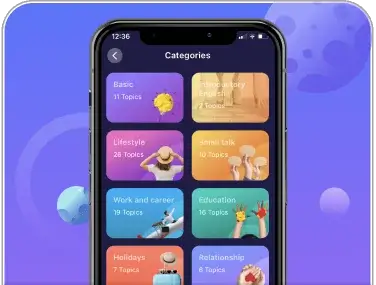It is human nature to naturally gravitate towards other individuals or groups that we “click” with, where we often end up surrounding ourselves with people who have similar interests, backgrounds, and cultures, etc. For many of us, we mainly socialize ourselves with people who have a higher chance of sharing the same perspectives or understanding our way of doing things as we feel comfortable in our bubble. Unfortunately, this tends to bring out our biased self and stop us from stepping outside of our comfort zone and experiencing new things.
Currently, Globalization is pushing everyone to step out of their comfort zone, to meet new people from different walks of life and life experiences, even in workplaces. Whether we like it or not, our workforce has started to diversify, and even potential clients may be of a different description to the target persona. Hence, communication challenges are undoubtedly an issue, with cultural and language differences as the key factors.
Kiểm tra phát âm với bài tập sau:

If these social barriers happen frequently in our lives and work environments, it may end up preventing us from establishing meaningful and impactful connections with others. Be it with colleagues or clients, failure to interact with other people well can cause a downfall of one’s professional success.
Luckily, language and culture are intertwined. By interacting with a new language, you are exposing yourself to the new culture or the various subcultures that are within. With English being such a global language, especially in business, many companies are providing employees with English language training opportunities in an attempt to cater to a larger audience.
Internal Benefits
Businesses with international teams should always consider encouraging the learning of a new language to improve internal communications. It can greatly help your company in many ways; hiring international employees, expanding abroad, etc. Here are some benefits that implementing a language-learning solution bring about:
Welcomes Employees to a New Environment
International employees that first enter the company should be actively empowered with tools that are able to integrate them into the local culture so as to minimize any culture gaps. Whether employees are new or old, learning a language together can help them assimilate with one another and facilitate effective communication.
Increases Cultural Sensitivity
As mentioned, culture and language are intertwined, and when employees learn a language, they are inevitably learning about the culture as well. When employees understand one another’s culture, they will feel like they are part of a single unit that is working towards common goals. This strengthened teamwork not only benefits employees in their social life but also their over productivity at work too.
Encourages Intercultural Integration
Learning a new language provides an opportunity for shared learning experiences and ultimately, improved communication skills. It creates opportunities for meaningful workplace engagement by making it easier for everyone to converse with everyone. Employees will also feel more comfortable with working with others, even if they don’t share the same culture/language.
External Benefits
The improved communication skills help lead to successful international working relationships. Despite differences inevitably arising due to cross-cultural communication, companies who are able to cater to clients and partners by using their native language end up reaping many benefits like:
Quality Service Provision to Clients
The ability to communicate in a client’s native language will help your employees serve their needs to the highest possible standard. Even if your employees aren’t fluent (yet), the effort your company makes to improve communication won’t go unnoticed! Clients will appreciate that you’re willing and able to gain an understanding of their language and how their culture impacts the way they do business. Plus, it’s a great way to put you one step ahead of many of your competitors.
Smooth Expansion to New Territories
For companies aspiring to do business in areas of the world with different linguistic backgrounds and cultures, operating on a multilingual level should be a priority. It will give your company the foundation required to understand logistics, legalities, and clientele, in turn, giving you a competitive advantage in the marketplace. The knowledge of the language will also provide your company and employees the confidence to sail through tough tides in the new territory
Integrate Cultural Awareness into Your Brand Image
Brand image is something every business should be familiar with, it lets clients and partners identify what you have to offer. Your brand image can make or break your whole company’s livelihood. The ability to effectively and professionally communicate with a wide range of people in their native languages shows that your team makes an effort to understand and appreciate everyone they do business with.
With That Being Said
Take a look at what are the most popular languages in the business world currently and take steps to adopt language learning solutions for them. For English language, consider ELSA Speak as your preferred Learning Management System to facilitate English language learning in your company. ELSA for Corporations plan offers features like ELSA Dashboard to help you manage your employees’ learning with ease, with detailed, on-the-go reports made available. Find out more about our World-class All-in-one corporate English training solution here and start taking steps to a more (and better) diverse workplace.

 30/11/2021 | Nhi Nguyen
30/11/2021 | Nhi Nguyen![Ưu đãi cực khủng cùng Khoai Lang Thang [Tháng 11/2024]](https://i0.wp.com/vn.elsaspeak.com/wp-content/uploads/2024/04/Banner-Blog-1-scaled.jpg?resize=1200%2C645&ssl=1)










